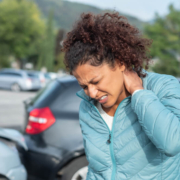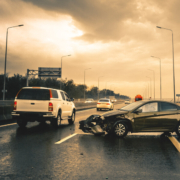The Dos and Don’ts After a Car Accident in Mississippi
Being involved in a car accident can be a traumatic experience. And the aftermath often isn’t easy. In fact, knowing what to do after a car accident can be overwhelming. If you’ve been in a car accident, understanding the dos and don’ts is important for everything from talking to the insurance agent to ultimately maximizing your claim settlement and everything in between. If you need help understanding what to do after a car accident and what actions to avoid, be sure to consult with an attorney.
What to Do After a Car Accident
Knowing what to do after a car accident can help you to navigate the process with more ease. Steps to take after a car accident include:
- Seek medical care. One of the first things that you should do after being involved in an accident is to seek medical care. It is essential that you seek medical care after an accident even if you don’t think that your injuries are severe. If you don’t seek medical care and you ultimately need to file a claim for medical expenses, your insurance company may doubt that the car accident and your injuries are related. Make sure you tell the doctor that you are seeking treatment following a car crash.
- Report the accident to your insurance company. After you have sought medical care, you should report the accident to your insurance company. It is recommended that you do this within 24-48 hours of the accident’s occurrence. Like seeking medical care, if you wait too long to report the accident and then file a claim, the insurer may not buy that the damages for which you are seeking compensation are really related to a car accident.
- Gather evidence. If you are physically able, it’s recommended that you gather evidence after the crash. Evidence at the scene that may be important to gather includes photos of the accident scene, details of both vehicles involved, the contact and insurance information of the other driver, and the names and contact information of any eyewitnesses. You should also be sure to report the accident to the police as soon as possible.
- Follow up on treatment. It’s very important that you not only seek medical care but that you also follow up on your treatment and follow your doctor’s orders. It is your responsibility to follow a prescribed treatment plan. If you don’t, the insurance company may argue that you didn’t do your due diligence in mitigating further harm and, therefore, aren’t entitled to your full settlement amount.
- Track your progress. Another good idea after a car accident is to track your progress as you heal. Having a journal of your injuries that includes how you’re feeling, your limitations, and your progress can be an important tool during the settlement negotiation process, especially as it pertains to damages for pain and suffering.
Actions to Avoid After a Car Accident
Just as there are things that you should do after a car accident, there are also some things to avoid doing. Actions to avoid after a car accident include:
- Don’t admit fault. One of the biggest mistakes that you could make during the claims process including admitting fault. If you admit fault, you may be ineligible for compensation, or your compensation could be limited in proportion to your degree of fault.
- Don’t accept a first settlement offer. Insurance companies are well-known for offering claimants less than they deserve in hopes that a claimant will accept the offer without a fight. These first-time settlement offers are often lowballed and unfair. Do not accept a first settlement offer without having it reviewed by a lawyer first.
- Don’t proceed with repairs without talking to the insurance company. Remember that if you want repairs done to your vehicle, you should get them approved by the insurance company in advance of having them performed. An insurance company will want to have the damage appraised in advance.
Do I Need an Attorney?
One thing to put on your to-do list is to think seriously about calling an attorney after being involved in an accident, especially if your injuries are severe and you will be seeking compensation for both economic and non-economic damages. An attorney can review your claim, help you to understand what your claim is worth, gather evidence, build your case, and negotiate a settlement offer. While working with an attorney isn’t required, it is advised and could have a positive impact on the outcome of your claim.









Leave a Reply
Want to join the discussion?Feel free to contribute!